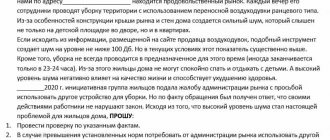Kalinin rural settlement of the OMSK MUNICIPAL DISTRICT of the OMSK REGION
Legal liability is a system of coercive measures applied to violators of land legislation in order to punish the perpetrators, suppress and prevent offenses and restore violated rights. This is also one of the land protection measures aimed at maintaining the order of land use and protecting subjective rights to land.
A land offense is understood as a guilty illegal act directed against established land legislation, interfering with the exercise of land rights and interests of legal entities and citizens, causing harm to the land as a natural resource, health and property of people, entailing legal liability established by law.
Legal liability for land offenses is regulated by the norms of land, criminal, administrative, labor, civil law, as well as the norms of the relevant procedural branches. Moreover, in most cases, the provisions of land legislation are of a reference nature, addressing issues of bringing to legal liability to special legislation - the Criminal and Civil Codes, the Code of Administrative Offenses.
The subject of the offense can be either an individual or an organization. At the same time, an illegal act can be recognized as such only if there is evidence confirming this fact. The psychological component should also be taken into account, namely, the attitude of the guilty person to his own offense, for example, a violation due to negligence or intent. This factor largely influences the identification of the nature of illegal actions, the determination of the type of responsibility and further punishment.
Many factors are taken into account when deciding on the punishment. The main type of responsibility is determined on the basis of the composition and characteristics of the committed acts. Moreover, each form has its own nuances and relates to the branch of legislation that contains the relevant legal norms governing a specific offense.
The legislation establishes four main forms of legal liability for land offenses (indicated in Chapter XIII of the Land Code of the Russian Federation):
- disciplinary;
- criminal;
- civil law and land law;
- administrative.
Each of these legal forms of liability applies for the commission of a corresponding offense.
Disciplinary liability for committing land offenses is provided for in Article 75 of the Land Code of the Russian Federation. In accordance with this article, officials and employees of the organization who are guilty of committing land offenses bear disciplinary liability in cases where, as a result of improper performance of their official or labor duties, the organization incurred administrative liability for the design, placement and commissioning of facilities that have a negative impact. impact on land, its pollution by chemical and radioactive substances, industrial waste and wastewater. The procedure for bringing to disciplinary liability is determined by labor legislation, legislation on state and municipal service, legislation on disciplinary liability of heads of administration, federal laws and other regulatory legal acts of the Russian Federation, laws and other regulatory legal acts of the constituent entities of the Russian Federation.
Disciplinary responsibility is currently underutilized. This is due to the fact that in society there is a stereotype about its ineffectiveness.
Criminal liability is applied when committing such offenses that are classified as crimes. Criminal liability for land crimes is applied in accordance with the Criminal Code of the Russian Federation.
Subjects of criminal liability can only be individuals, who in criminal law are divided into two groups - citizens and officials. Criminal liability measures are applied only in court in accordance with criminal procedural legislation. The issuance of a court decision is preceded by an investigation by law enforcement agencies. A conviction passed by a court serves as the basis for imposing criminal sanctions on the offender. Criminal sanctions applied to violators of land legislation include a fine calculated in relation to the minimum wage, compulsory or corrective labor, restriction or imprisonment. The involvement of a person guilty of committing a land crime does not relieve him of the obligation to eliminate the offense and compensate for the damage caused.
Criminal liability is applied for crimes and includes the most stringent measures of state coercion. The procedure for its implementation is regulated by law in the most detail.
Civil and land liability is also called property liability for damage caused to the property of citizens and legal entities, as well as to the life and health of people.
Civil liability is expressed in compensation for losses, harm, etc. Losses caused as a result of violation of the rights of land owners, land users, landowners and tenants of land plots are subject to compensation in full, including lost profits, in the manner prescribed by civil law . Legal entities and citizens are obliged to compensate in full for the damage caused as a result of their commission of land offenses. Unauthorizedly occupied land plots are returned to their owners, land users, landowners, land tenants without reimbursement of costs incurred by persons guilty of violating land legislation during the illegal use of these land plots. Damage is compensated voluntarily or in a lawsuit by decision of the courts (in disputes between citizens and by decision of arbitration courts - in disputes between legal entities and entrepreneurs without forming a legal entity).
When carrying out the functions of state land supervision, specialists from the Rosreestr Office for the Omsk Region identify violations of land legislation. Offenders who commit these violations are subject to administrative liability.
The basis for administrative liability is an administrative offense. The subjects of land offenses for which administrative measures are applied can be citizens, officials and legal entities.
According to the Code of the Russian Federation on Administrative Offences, an administrative offense is recognized as an unlawful, guilty (intentional or careless) action or inaction of an individual or legal entity for which the legislation provides for administrative liability. It occurs if the violations by their nature do not entail criminal liability in accordance with current legislation.
An essential feature of administrative liability is that it is expressed, as a rule, in the form of an administrative fine or warning.
An administrative fine is a monetary penalty and is expressed in rubles.
A warning is issued in writing and is established for first-time administrative offenses in the absence of causing harm or a threat of harm to the life and health of people, objects of flora and fauna, the environment, cultural heritage sites (historical and cultural monuments) of the peoples of the Russian Federation, state security , threats of natural and man-made emergency situations, as well as in the absence of property damage.
The introduction of amendments to the Code of the Russian Federation on Administrative Offenses in terms of the amount of fines in 2015 entailed a significant decrease in violations of the requirements of land legislation and, as a result, a decrease in the number of those brought to administrative responsibility.
Thus, in 2021, the Department’s specialists brought 299 violators of land legislation to administrative responsibility. This figure is significantly lower compared to 2016 and 2015 (2016 – 508 violators, 2015 – 897 violators).
Anastasia Islanova,
specialist expert
department of state land supervision
Rosreestr Office
in the Omsk region.
Types of sanctions for land offenses
What responsibility does the law provide for violations of the law related to land relations? There are only two types of punishments: a fine and a warning. According to many experts, there is no arrest due to its ineffectiveness in the area in question.
A warning is the minimum sanction. In essence, the official simply informs the culprit of non-compliance with the law. A demand is made to stop violating the norms in force in Russia. A fine is a much more severe and serious measure. By decision of the court (magistrate or district court), the guilty person is subject to a certain monetary penalty.
Transport violations
It is also necessary to pay attention to Chapter 11 of the Code of Administrative Offenses of the Russian Federation, which talks about administrative liability applied for committing illegal actions on vehicles. This is, for example, harmful grazing of livestock, mowing grass, plowing the land, damaging or completely cutting down plantings, dumping garbage in inappropriate places, excavating soil or removing a layer of turf, discharging industrial, sewer, sewage or reclamation water into treated rivers or other unapproved places, installation of advertising or signs without obtaining the appropriate permission, laying communications in unauthorized areas, and much more.
It should be noted that most land and environmental offenses are committed on vehicles. That is why administrative and disciplinary liability for land offenses of this kind is included in a separate chapter.
About trespassing
To begin with, it is worth paying attention to Article 74 of the Russian Land Code, which regulates the establishment of sanctions for both administrative and criminal and disciplinary offenses. According to Article 2.1 of the Code of Administrative Offenses of the Russian Federation, a violation of administrative law is a guilty and illegal action or inaction, for which sanctions must be imposed on the relevant entities. This type of responsibility can be borne by a person who has reached 16 years of age.
Most of the offenses in the field of land ownership are enshrined in Chapter 7 of the Code of Administrative Offences. Thus, it is worth paying attention to Article 7.1, which talks about the unauthorized occupation of land and the use of this territory without obtaining the appropriate documents. This offense even has an official name - “violation of boundary boundaries.” At the same time, a person can break the law either intentionally or completely accidentally. According to Article 7.2, for violating boundary boundaries, a citizen is subject to a fine or warning.
Violation of the procedure for establishing land relations
Chapter 19 of the Code of Administrative Offenses of the Russian Federation talks about administrative liability for violations in the field of late submission of applications, execution of various documents, papers, etc. Here you can also find a link to land violations. Thus, Article 19.9 of the Code of Administrative Offenses of the Russian Federation deals with violation of the deadlines for consideration of applications that contain a request for the provision of land territory or a set of land plots. Here, an administrative fine is provided as a punishment for administrative land offenses.
You can also highlight Article 19.21, which refers to non-compliance with the established procedure for state registration of rights to real estate.






